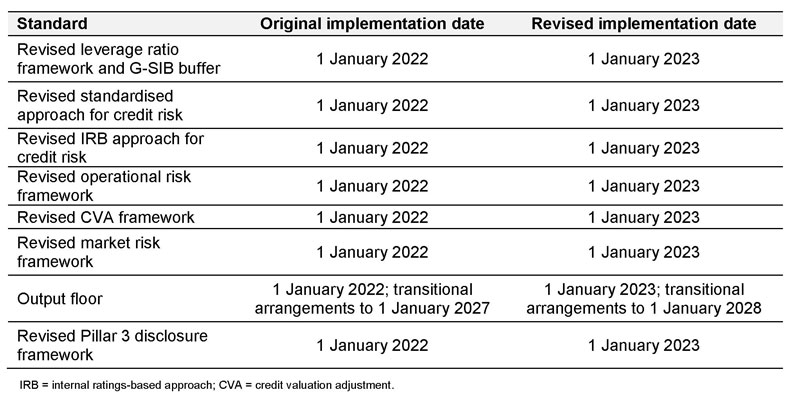The Basel Committee’s oversight body, the Group of Central Bank Governors and Heads of Supervision (GHOS), has endorsed a set of measures to provide additional operational capacity for banks and supervisors to respond to the immediate financial stability priorities resulting from the impact of the coronavirus disease (Covid-19) on the global banking system.
“It is important that banks and supervisors are able to commit their full resources to respond to the impact of Covid-19. This includes providing critical services to the real economy and ensuring that the banking system remains financially and operationally resilient. The measures endorsed by GHOS today aim to prioritise these objectives and we remain ready to act further if necessary,” said François Villeroy de Galhau, Chairman of the GHOS and Governor of the Bank of France.
Pablo Hernández de Cos, Chairman of the Basel Committee and Governor of the Bank of Spain, said: “Today’s measures will free up operational capacity for banks and supervisors as they respond to the economic impact of Covid-19. The Committee will continue to closely monitor the impact of Covid-19 on banks and supervisors and respond as necessary in coordination with the Financial Stability Board and other standard-setting bodies on cross-cutting issues.”
The measures endorsed by the GHOS comprise the following changes to the implementation timeline of the outstanding Basel III standards:
- The implementation date of the Basel III standards finalised in December 2017 has been deferred by one year to 1 January 2023. The accompanying transitional arrangements for the output floor has also been extended by one year to 1 January 2028.
- The implementation date of the revised market risk framework finalised in January 2019 has been deferred by one year to 1 January 2023.
- The implementation date of the revised Pillar 3 disclosure requirements finalised in December 2018 has been deferred by one year to 1 January 2023.
These standards were finalised with the objective of complementing the initial set of Basel III standards. The revised timeline is therefore not expected to dilute the capital strength of the global banking system, but will provide banks and supervisors additional capacity to respond immediately and effectively to the impact of Covid-19.
GHOS members unanimously reaffirmed their expectation of full, timely and consistent implementation of all Basel III standards based on this revised timeline. Current events demonstrate once again the importance of a resilient financial system, which these reforms will help further reinforce.
A summary table of the revised implementation timelines is provided in the annex to this press release.
Annex – summary of revised implementation timeline

ISLA adds: From the perspective of the securities lending industry, one of the key elements of the Basel IV package is the introduction of mandatory minimum numerical haircuts for securities financing transactions into the bank capital framework. Regardless of the delay announced on Friday, the European Banking Authority has advised the European Commission (view here) not to implement the mandatory haircut provision in EU law at this point in time.

